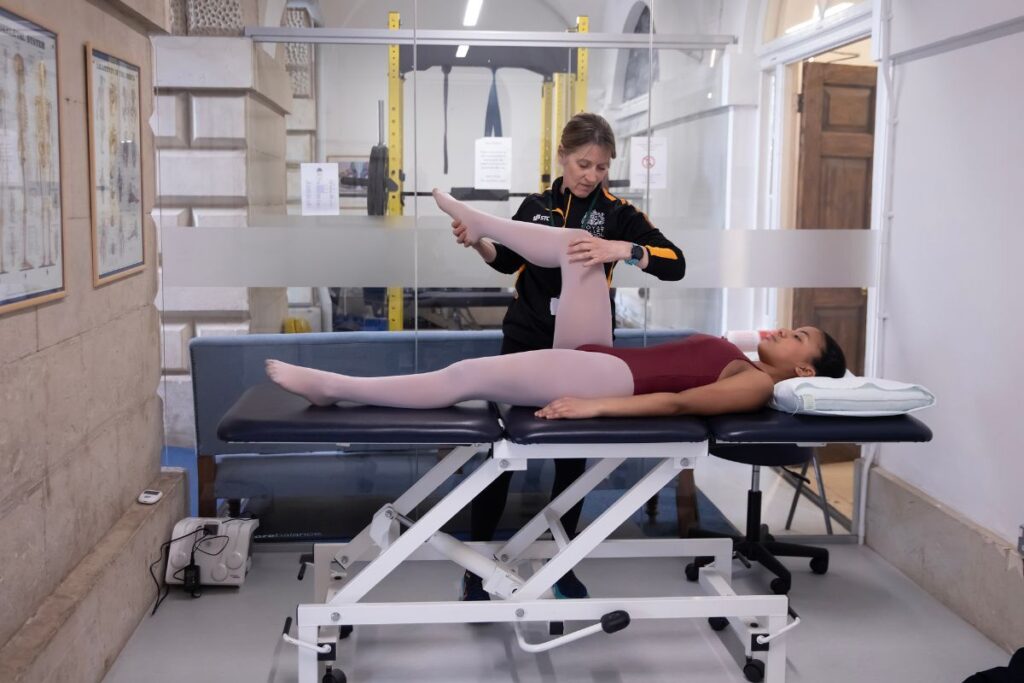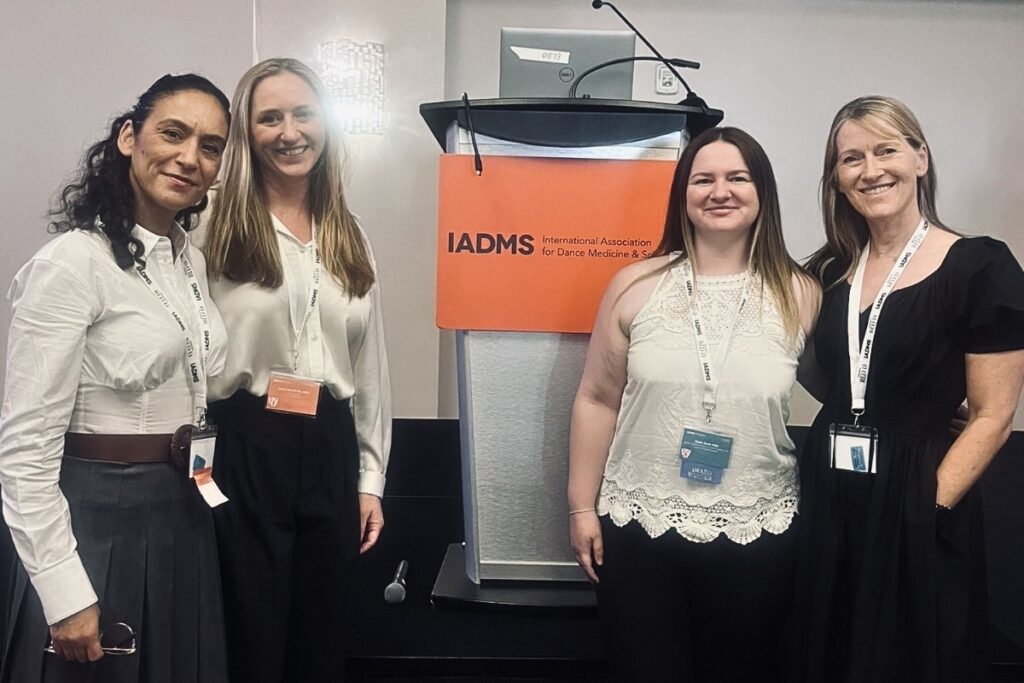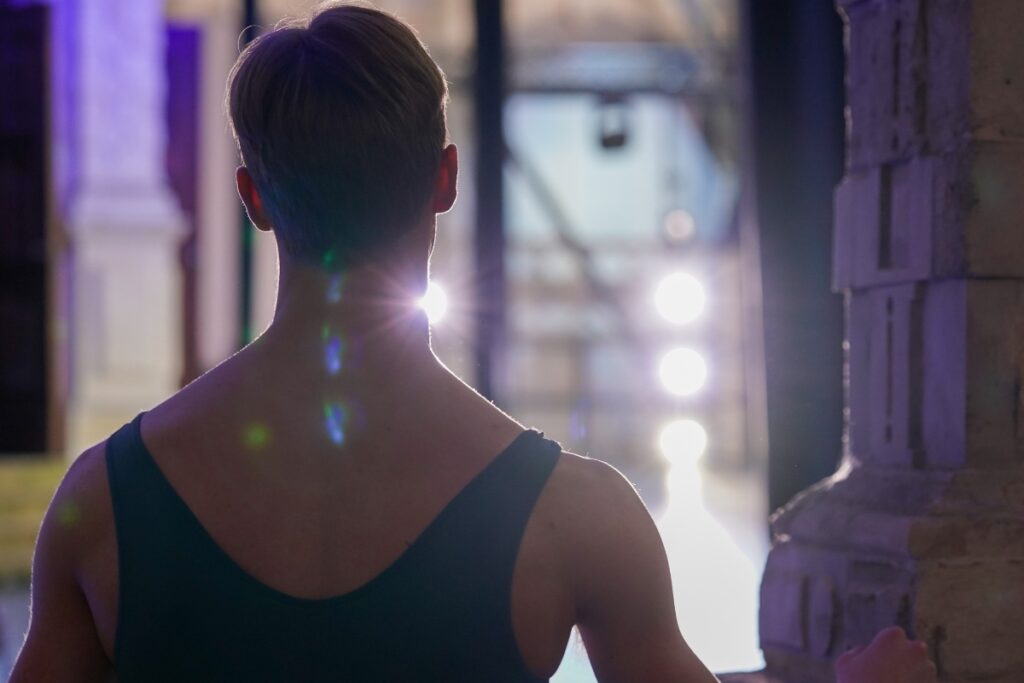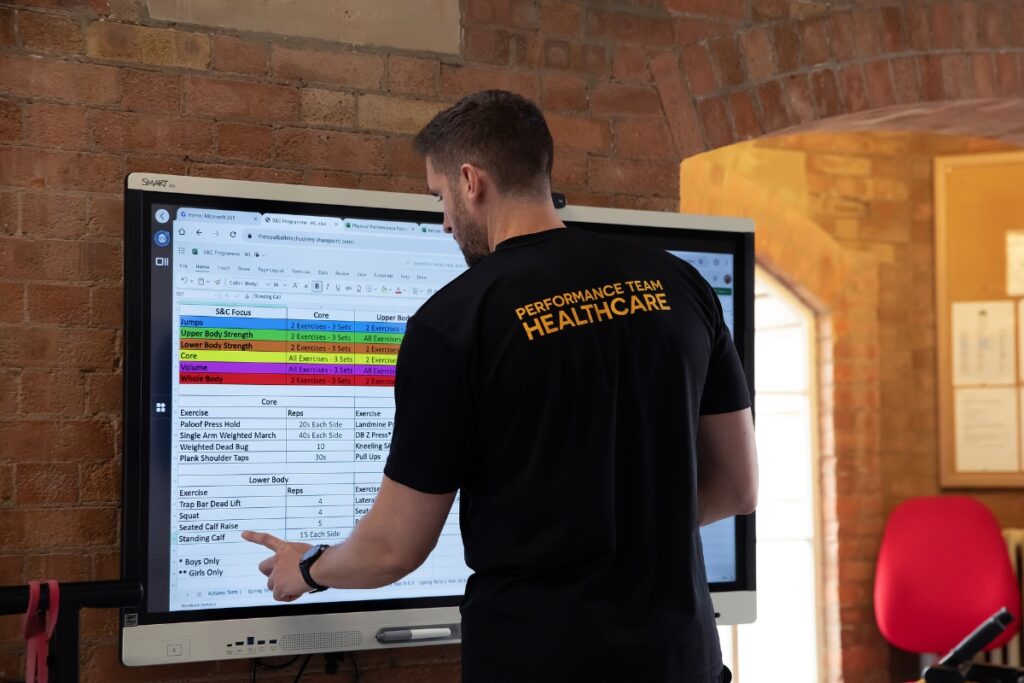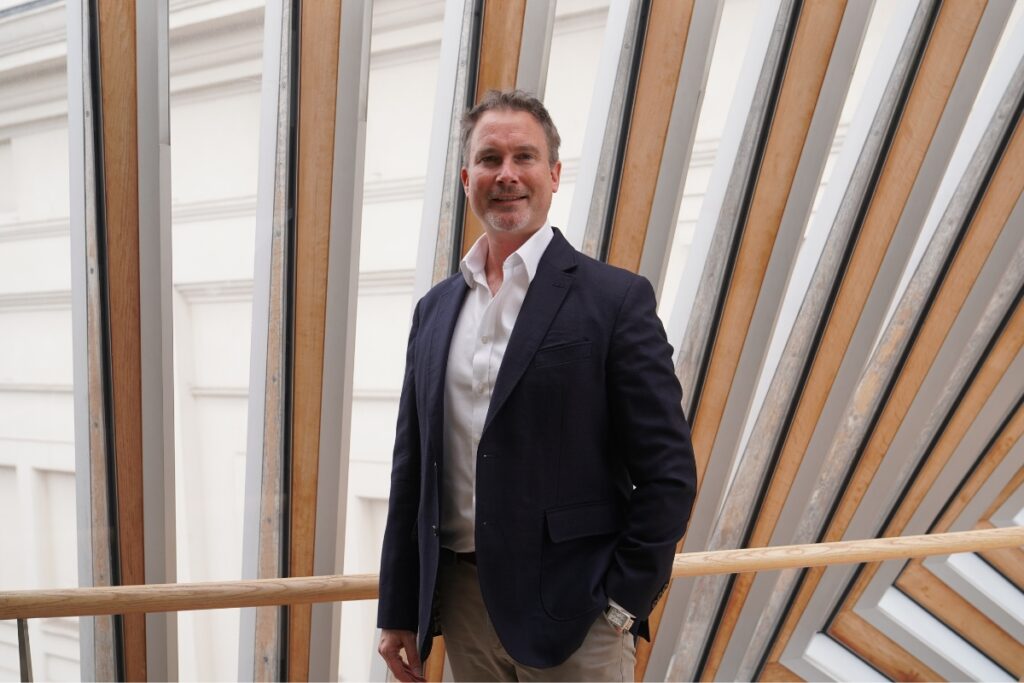Behind the curtain: how the Healthcare Team support our students during performance week
Our annual Summer Performances are a highlight of the school year and a culmination of months of training, rehearsals and dedication by our students. Behind every pirouette and pas de deux is a team working tirelessly to ensure our students are healthy, safe and supported when they take to the stage: the healthcare team.
We caught up with Physical Health Lead Erica Gethen Smith on-site at Opera Holland Park to get an inside look at how the team prepare, adapt and deliver care during this high-pressure and physically demanding time.
Bringing the clinic to the stage
‘We bring physio, Pilates, and strength and conditioning equipment to Opera Holland Park, so we can carry out assessments and treatments for injuries and rehabilitation as usual.’
This year, a few adjustments were necessary due to extreme weather early in the week.
‘The heat meant it was too hot to expect students to do their usual strength and conditioning sessions, therefore we have adapted rehab plans to reduce their overall load in the heat.’
In addition to physiotherapy, Pilates, and strength and conditioning, the team also opened up the sports massage therapy service that is provided at Upper School for all students to access.
‘We have volunteer sports massage therapists offering treatments to both Upper School and White Lodge students, which was brilliant and much appreciated, especially for tired calf muscles.’
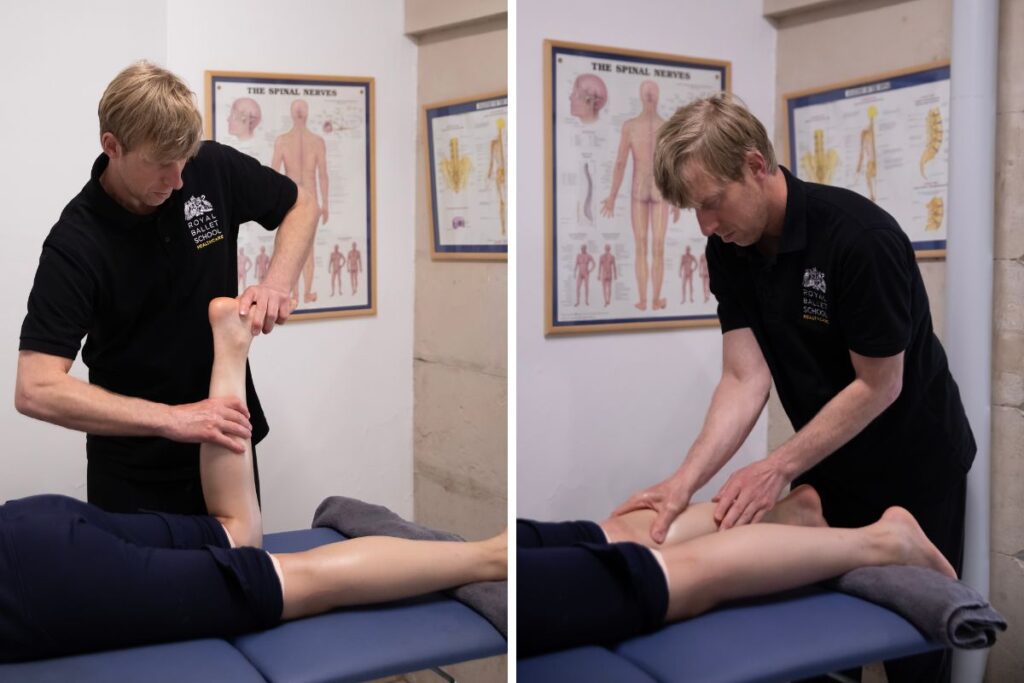
Adapting to unprecedented heat
Opera Holland Park provides an idyllic opportunity for our students to perform in an open-air setting, however, it can also bring with it the challenge of the weather.
‘This year was very different to previous years as we had extreme temperatures on the first two days of the week, which followed a very hot weekend. The week before Opera Holland Park, Dr Dan Fitzpatrick provided an extreme heat illness briefing to all healthcare, pastoral and production staff to ensure we could work seamlessly to uphold student safety in the heat.
We discussed how we can all assist the students, from medical staff and pastoral teams to the stage management crew. Knowing what signs to look for in the students, and then the strategies we can utilise to manage that.’
In practice, this involved cooling students in between rehearsals with ice towels and packs, water sprayers, portable fans, ice buckets to plunge wrists and ankles, and over 400 ice pops! The team monitored rest and hydration closely and encouraged regular food, fluid and electrolyte intake.
‘We have regular meetings with the artistic staff, which increase in frequency during performance season. Ahead of the hot weather we discussed how the students would be traveling to and from Holland Park and made small allowances to ensure they weren’t overheating when traveling to the venue.
The artistic and production teams were also very supportive in adjusting rehearsal patterns to allow for more breaks and, for the safety of the students, opted for a ‘dress with no dress’ – no costumes during Tuesday’s dress rehearsal to avoid the students overheating.
It can be easily underestimated just how much fluid and electrolytes need to be taken throughout the day to combat the heat. Some students thought they were drinking enough fluid but their symptoms said otherwise, so we have needed to monitor everyone closely.
A period of intense heat coupled with the adrenaline of performing and the end of term, meant it has been important to take fatigue levels into consideration as well. Dehydration can mimic or even cause muscle fatigue, so we have to ensure the students are rested and hydrated before they rehearse and perform.’
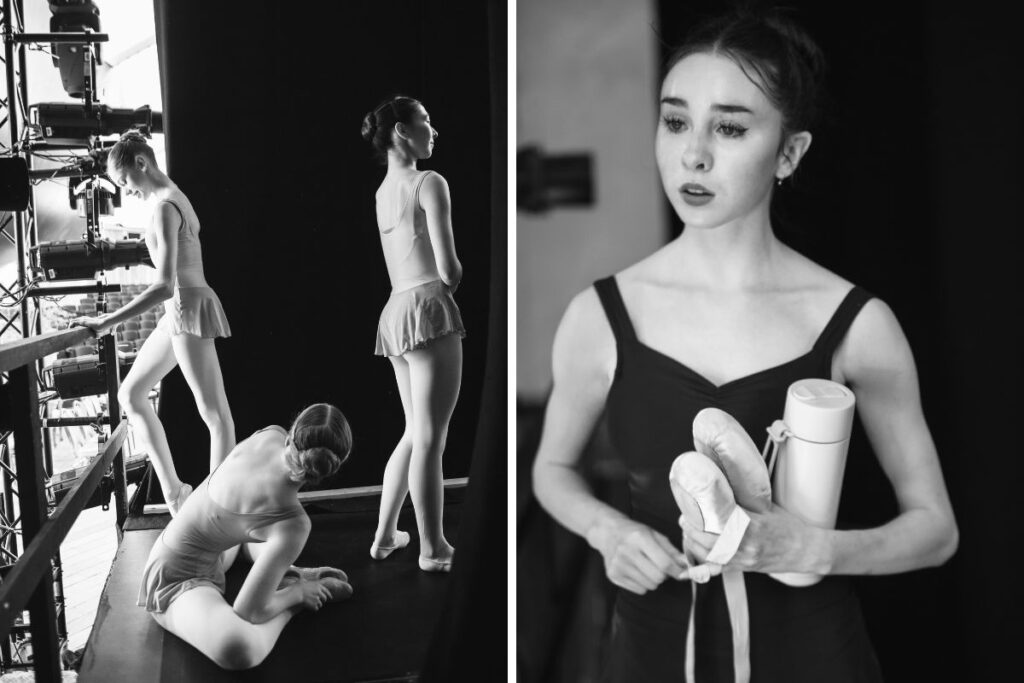
©2025 Royal Ballet School. Photographed by Laima Arlauskaite.
Injury management: on-call and on-site
Performance week often brings increased injury risk due to fatigue, adrenaline and packed schedules but this year, the team was well-prepared.
‘We’ve actually had no new significant injuries, which is great. There have been fatigue-related lower limb muscle tightness and cramps but no specific injuries.’
The healthcare tent included everything from massage tables to an ultrasound machine, with two doctor’s clinics on-site to assess and manage any niggles quickly.
‘Having our entire team and equipment here has been essential. A few students had existing injuries coming into the week, but we’ve managed their loads carefully so no one has to drop out at the last-minute.’
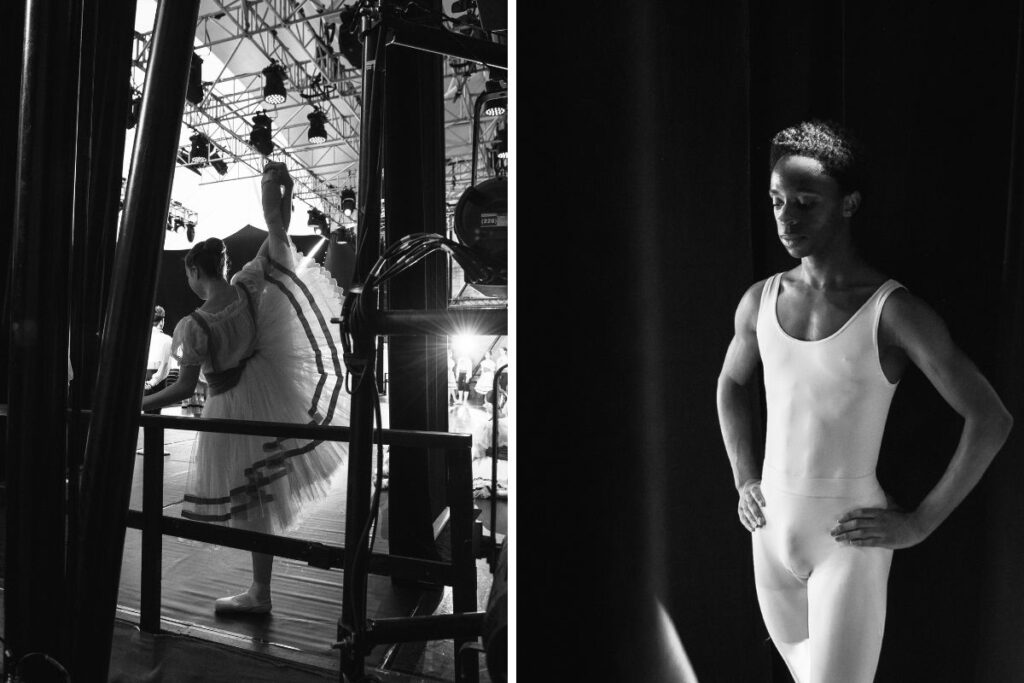
©2025 Royal Ballet School. Photographed by Laima Arlauskaite.
The joy of seeing the students shine
Despite the challenges, Erica says there’s nothing more rewarding than seeing the students take to the stage.
‘It’s amazing to see students who had stress responses or fractures earlier in the year now back to their full range of dance activity and performing in their respective pieces. Watching their full rehab journey come to life on stage is the best part of my job.’
Performance week can be full of surprises – Erica even found herself helping backstage with wardrobe quick changes.
‘It’s a bit crazy, but it’s such a team effort. Everyone chips in.’
A window into healthcare support
This year also marked a new initiative where donors and guests were invited to visit the healthcare tent before a performance.
‘We’ve worked more closely with the development team to offer a behind-the-scenes look at what we do. Guests have had a chance to see the setup, hear about our physical and mental health provision, and ask questions. It’s sparked some really meaningful conversations.’
Final thoughts
As the curtain closes on another successful Summer Performance season, it’s clear that the healthcare team plays an essential role, not just treating injuries, but proactively supporting students’ wellbeing in every way possible.
‘Ultimately, it’s about giving the students the best chance to perform at their best – safely, confidently and with joy.’


